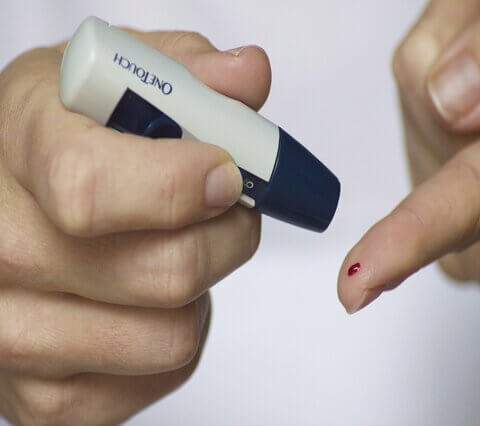

If you have high cholesterol, you have a greater risk of developing heart disease, vascular dementia or of having a stroke. In this article, we’ll tell you more about this condition. You can find out the symptoms and how to treat the condition.
Cholesterol is a fatty substance in your blood. Everybody has it, it’s produced by the liver. We do need some cholesterol because our cells use it. Cholesterol makes vitamin D, some hormones and cell membranes.
There are two different types of cholesterol. One is good and the other is bad. Good cholesterol is High-Density Lipoproteins or HDL. This form of cholesterol works to remove the bad cholesterol from your body. It takes it back to the liver which breaks it down and then passes it out of the body.
Bad cholesterol is Non-high-density lipoproteins or Non-HDL. Bad cholesterol is also often called LDL cholesterol, but as it isn’t the only bad form, we now say Non-HDL.
The fatty substance in the blood is bad cholesterol, it will block your arteries and cause them to clog up with fat and narrow. Narrow arteries mean your blood isn’t able to pass through them efficiently and may cause a heart attack or stroke.
When you have a blood analysis you may have noticed that triglycerides are on the list with your cholesterol reading. Triglycerides are also a type of fat in our blood (a lipid).
The calories that aren’t needed for energy convert into triglycerides. Fat cells then store them. When we need energy we release triglycerides. If we eat too much and don’t exercise the triglycerides keep hold of the fat which will then block or narrow the arteries.
A lot of the time high cholesterol is caused by your lifestyle and making lifestyle changes can lower your cholesterol levels. Some of the things you can do include:
Eat less saturated fat – A lot of processed foods and in meat such as sausages, bacon, and hamburgers contain saturated fat. You’ll also find saturated fat in whole milk, hard cheese, butter, cream, and ice cream.
Eat less Trans fats – Trans fats are in cakes, pastries and pies, takeaway meals, and fried food. Maintain a healthy weight – If you are overweight have a look at the British Heart Foundation website for some ideas on how to choose a diet that will suit you.
Take up some form of exercise. -Walking is very good for you and doesn’t cost any money. If you like swimming head for your local pool or join an exercise class locally. You can also do exercises at home. Search YouTube for an exercise routine you’d like to do.
Give up smoking – smoking can also effect you. The tar in your arteries makes the cholesterol easier to stick to your artery walls.
You can go to your doctor’s or your local pharmacy. You can have the test by pricking your finger or by taking blood from your arm. Your doctor or pharmacist will check your levels for good and bad cholesterol along with your triglycerides
According to the NHS, you should aim to have a total cholesterol reading of 5 or below. Good cholesterol should be 1 or above and Non-HDL (bad) should be less than 4.
Your triglycerides should be 1.7 or below if you did a fasting test or 2.3. or below if you ate before doing the blood test.
If your total reading is higher than 5 then your doctor or pharmacist will talk to you about achieving a lower number.
As we have said lifestyle changes do help. But your doctor might also prescribe drugs or statins, which you will need to take once a day. If you would like more information about how to lower your cholesterol speak to us here at the pharmacy. We’re always happy to give help and advice.

To provide the best experiences, we and our partners use technologies like cookies to store and/or access device information. Consenting to these technologies will allow us and our partners to process personal data such as browsing behavior or unique IDs on this site and show (non-) personalized ads. Not consenting or withdrawing consent, may adversely affect certain features and functions.
Click below to consent to the above or make granular choices. Your choices will be applied to this site only. You can change your settings at any time, including withdrawing your consent, by using the toggles on the Cookie Policy, or by clicking on the manage consent button at the bottom of the screen.